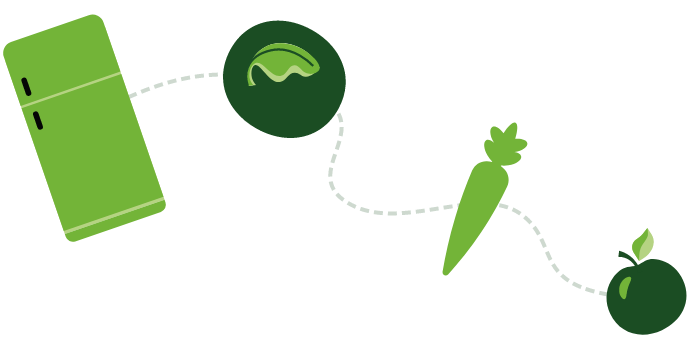Composting is not only an excellent way to reduce waste, but it’s also a sustainable practice that enriches the soil and promotes a healthy growing environment for plants.
Many people are deterred from composting due to limited space or living in rental properties.
However, with the use of tumblers and bins you can buy at most supermarkets or home improvement stores, you can create a renter-friendly, cheap, and easy composting system.
The Sustainability of Composting
Composting is a sustainable practice for several reasons. First and foremost, it reduces the amount of organic waste sent to landfills. When organic waste decomposes in landfills, it produces methane, a potent greenhouse gas that contributes to climate change. By composting, we divert this waste from landfills, preventing the release of harmful gasses into the atmosphere.
Composting also creates nutrient-rich soil, which can then be used to nourish gardens and potted plants. By enriching the soil with compost, the need for chemical fertilizers is eliminated, reducing water pollution and supporting a healthier ecosystem. Composting also aids in moisture retention, and erosion control, and promotes healthier plant growth.
How the Composting Process Works
Composting is a natural process that involves the decomposition of organic matter (aka leftover food scraps, newspapers, etc) into a nutrient-rich soil amendment called compost. The process relies on the activity of bacteria, fungi, and worms that break down the organic material into simpler compounds.
Carbon-rich materials, often referred to as browns, provide a source of energy for the microorganisms. The ‘browns’ include dry leaves, straw, shredded paper, and cardboard.
Nitrogen-rich materials, known as greens, supply the microorganisms with protein and other nutrients. These can include fruit and vegetable scraps, coffee grounds, tea leaves, and grass clippings.
Oxygen is necessary for the aerobic breakdown of organic matter. Proper aeration ensures that the microorganisms can efficiently decompose the waste.
Moisture is required to facilitate microbial activity. The compost pile should be damp but not overly saturated.
Setting Up a Composting System Using Tumblers and Bins
Here are easy step-by-step instructions to create a renter-friendly, cheap, and easy compost using tumblers and bins:
Step 1: Choosing the Right Equipment for Your Compost
Choose a compost tumbler or bin that fits your space limitations. Tumblers are excellent for small spaces and provide the added advantage of easy turning, which accelerates the decomposition process. If you have more space, consider using multiple bins for a continuous composting system.
Step 2: Position the Composting System
Place the tumbler or bin in a convenient location that receives partial sunlight. Ensure easy access for adding materials and turning the compost. If you have a yard, you can position the bin on bare soil, allowing beneficial organisms to enter the compost from below.
Step 3: Layer the Composting Materials
Start by adding a layer of browns, such as dry leaves or shredded paper, to the bottom of the tumbler or bin. Follow this with a layer of greens, such as fruit and vegetable scraps or grass clippings. Repeat this layering process, alternating between browns and greens until the container is nearly full, leaving some space for aeration.
Step 4: Monitor Moisture and Aeration
Check the moisture level of the compost regularly. It should be consistently damp, similar to a wrung-out sponge. If the compost is too dry, add water; if it is too wet, mix in additional browns to absorb excess moisture. To ensure proper aeration, turn the tumbler or mix the contents of the bin using a pitchfork or shovel every few weeks.
Step 5: Allow the Compost to Mature
Composting usually takes anywhere from two to six months, depending on the materials used and environmental conditions. During this time, continue adding new kitchen scraps and yard waste, ensuring a balanced mix of browns and greens. The compost is ready when it has a dark, crumbly texture, resembling rich soil.
Creating a renter-friendly, cheap, and easy composting system using tumblers and bins allows individuals living in small spaces or rental properties to still live sustainably!
By diverting organic waste from landfills and creating nutrient-rich soil, composting contributes to a healthier environment and reduces our impact on the planet. So why not give it a try? Start composting today!
Learn more about living sustainably by checking out our other blogs, like A Beginners Guide to Composting at Home or 10 Tips and Tricks for an Eco Friendly Garden.
TAKE THE CHALLENGE!
Get ready to dig into our fun and illuminating quiz to test the skills we need for a sustainable future.
Click Here